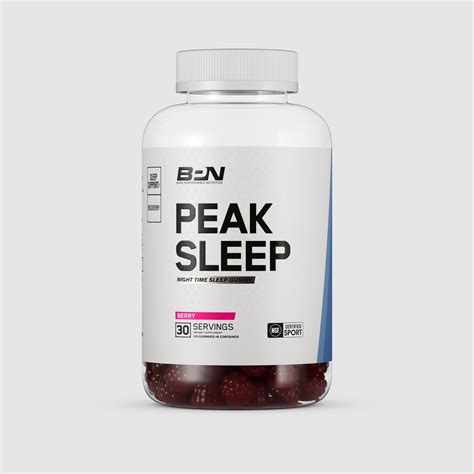What nightly routine optimizes sleep for peak male performance & recovery?

Unlocking Peak Performance Through Optimal Sleep
For men aspiring to achieve peak physical and mental performance, as well as robust recovery, the quality of their nightly sleep is not merely a luxury but a fundamental pillar. Sleep is when the body repairs muscle tissue, consolidates memories, regulates hormones like testosterone, and clears metabolic waste. A strategic nightly routine can be the game-changer, transforming restless nights into restorative deep sleep. Let’s delve into the components of an optimized evening regimen designed to maximize male performance and recovery.

The Critical Pre-Sleep Wind-Down: 2-3 Hours Before Bed
The transition from a busy day to a restful night doesn’t begin when your head hits the pillow. It starts hours earlier. To signal to your body that it’s time to slow down, implement these practices:
- Digital Sunset: Aim to power down all electronic devices (phones, tablets, laptops, TVs) at least 60-90 minutes before your desired bedtime. The blue light emitted by screens can suppress melatonin production, the hormone essential for sleep onset.
- Warm Bath or Shower: A warm bath or shower approximately 90 minutes before bed can help facilitate sleep. The subsequent drop in body temperature after leaving the warm water mimics the natural temperature decline that precedes sleep, acting as a natural sedative.
- Light Reading or Journaling: Instead of screen time, engage in calming activities like reading a physical book or journaling. Journaling can be particularly effective for offloading thoughts, worries, and to-do lists from your mind, preventing them from swirling during the night.
Optimizing Your Sleep Environment
Your bedroom should be a sanctuary for sleep. Every element, from temperature to lighting, plays a role in your ability to fall asleep and stay asleep.
- Keep it Cool: The ideal sleep temperature for most people is between 60-67°F (15-19°C). A cooler environment helps your body achieve and maintain its core temperature drop necessary for sleep.
- Embrace Darkness: Even small amounts of light can disrupt sleep. Use blackout curtains, an eye mask, or ensure all light-emitting devices are covered or removed from the room.
- Silence is Golden: Minimize noise distractions. If complete silence isn’t possible, consider a white noise machine or earplugs to block out sudden or inconsistent sounds.
- Comfortable Bedding: Invest in a comfortable mattress and pillows that support your sleep posture. High-quality sheets made from breathable materials can also enhance comfort.
![🔥 [140+] 4K Dark Wallpapers | WallpaperSafari](/images/aHR0cHM6Ly90czEubW0uYmluZy5uZXQvdGg/aWQ9T0lQLm9ZTEw3a0pQYjR5NU5rLVBJbVY4X1FIYUVLJnBpZD0xNS4x.webp)
Nutrition, Hydration & Supplements: Evening Considerations
What you consume in the hours leading up to bedtime significantly impacts your sleep quality.
- Mind Your Meals: Avoid heavy, rich, or spicy meals close to bedtime (ideally 2-3 hours before). Digestion diverts energy that could otherwise be used for restorative processes. If you must eat, opt for a light snack like a small bowl of oatmeal or a banana.
- Caffeine Cut-Off: Be mindful of your caffeine intake. For many men, cutting off caffeine by early afternoon (e.g., 2-3 PM) is essential, as its effects can linger for hours.
- Alcohol’s Deception: While alcohol might initially make you feel drowsy, it fragments sleep later in the night, disrupting REM sleep and leading to poorer quality rest. Limit or avoid alcohol in the evening.
- Hydration Smartly: Stay hydrated throughout the day, but taper off liquid intake an hour or two before bed to minimize nocturnal awakenings for bathroom breaks.
- Consider Supplements (Wisely): If needed, talk to a doctor about supplements like magnesium (which aids muscle relaxation and nerve function) or melatonin (for regulating sleep cycles). Always consult a healthcare professional before starting any new supplement regimen.

Mindset & Stress Management Before Sleep
A calm mind is prerequisite for deep sleep. High stress levels or an overactive brain can sabotage even the best physical preparations.
- Mindfulness or Meditation: Dedicate 10-15 minutes to mindfulness meditation. Focused breathing exercises can significantly reduce heart rate and calm the nervous system.
- Progressive Muscle Relaxation: Tense and then relax different muscle groups in your body, starting from your toes and working your way up to your head. This technique helps release physical tension.
- Gratitude Practice: Reflecting on things you’re grateful for can shift your mindset from anxiety to peace, making it easier to drift off.

Consistency is Key
The most potent aspect of any sleep routine is consistency. Going to bed and waking up at roughly the same time each day, even on weekends, helps regulate your body’s natural circadian rhythm. This regularity reinforces your internal clock, making it easier to fall asleep quickly and wake up feeling refreshed and energized.

Conclusion: The Performance Edge
Optimizing your nightly routine is a powerful investment in your overall well-being and performance. By consciously managing your environment, nutrition, and mental state in the hours before bed, men can significantly enhance their sleep quality, leading to improved physical recovery, sharper cognitive function, better hormonal balance, and ultimately, a more productive and resilient life. Make sleep a priority, and watch your performance soar.









